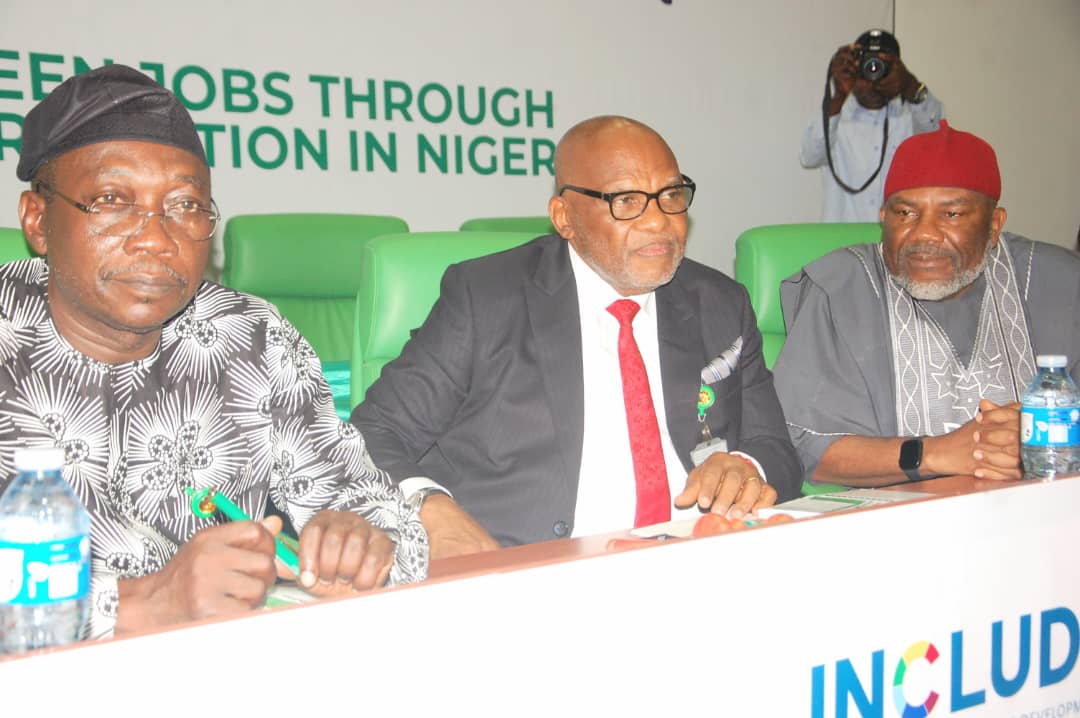At a just concluded dialogue on green jobs and low carbon transition, the House Committee on Renewable Energy has reaffirmed its commitment to tackling the gaps in Nigeria’s green jobs ecosystem.

The chairman, House of Representatives Committee on Renewable Energy, Rep. Victor Ogene, has emphasised the importance of placing women and youths at the forefront of green job creation through gender-responsive policies, targeted skills training and job guarantees in funded projects.
He stated this in his keynote address at the just concluded Africa Policy Dialogue Kick-off Workshop organized by INCLUDE Knowledge Platform, Advocacy for Policy and Innovation (API) and the committee.
He described the workshop as not just a mere dialogue but the stepping stone for a legislative and national framework for real economic transformation.

The workshop seeks to build upon the outcomes of the first annual legislative conference on renewable energy held earlier this year in Lagos. Back then, the committee had announced its proposal for a national inclusive green jobs law, a landmark bill linking renewable energy investments to job creation, skills development, and youth and gender inclusion.
It aims to unlock employment opportunities, particularly for Africa’s youth, while aligning with regional trade frameworks under AfCFTA to foster a competitive African energy market.
In his address, Rep. Ogene stated that legislative responsibilities must go beyond “brick-and-mortar” projects to include job creation as a core focus, especially for young Nigerians. He stressed that green jobs are not abstract concepts but tangible tools for empowerment, and that addressing the existing gaps must be a national priority.
“We cannot discuss green jobs without acknowledging the green skills gap. Today, nearly 50 percent of skilled labour needs in Nigeria’s renewable sector remain unmet. Employers across the country consistently report difficulty hiring qualified technicians, engineers, and system operators.”
He further pointed out the lack of local equipment manufacturing as a missed opportunity, explaining that most renewable energy equipment is imported—not for lack of raw materials, but due to skills and policy gaps that hinder local production and knowledge transfer.
“There is also a gap in local equipment manufacturing, as most equipment used in renewable energy power generation is imported, potentially loosing green job opportunities. Interestingly, this is not because we don’t have the raw resources to locally manufacture, but because there are skill gaps and inadequate policies to ensure knowledge transfer.” he stated.
He stated that lawmakers are aware that crafting effective green jobs legislation for women and youth requires meticulous work to ensure alignment with existing laws and potency in achieving our goals. He affirmed that his team is committed to delivering a comprehensive and impactful law that the nation will be proud of.
To address these gaps, the following 9-point agenda commitment are to be adopted:
- Drafting and advancing legislation that mandates a percentage of green jobs in national renewable programmes, with clear targets for youth and women.
- Developing oversight frameworks to ensure results-based financing and impact measurement are tied to job creation.
- Partnering with the private sector and development agencies to build training pipelines and apprenticeships.
- Mainstreaming gender equity and youth empowerment into energy planning and infrastructure development.
- Promoting inclusive access to green jobs, particularly for youth and women.
- Institutionalizing employment targets in public and private green economy projects.
- Establishing mechanisms for workforce development aligned with the energy transition.
- Provision of incentives and compliance measures to support inclusive hiring practices.
- Fostering public-private partnerships to scale up green skills and apprenticeships.
He thereafter called on partners in the private sector, civil society, development finance institutions, and academia to join hands together with the national assembly to co-create policy frameworks that track and report green job metrics, incentivize local content and inclusion and fund skill acquisition and mentorship for underrepresented groups.



